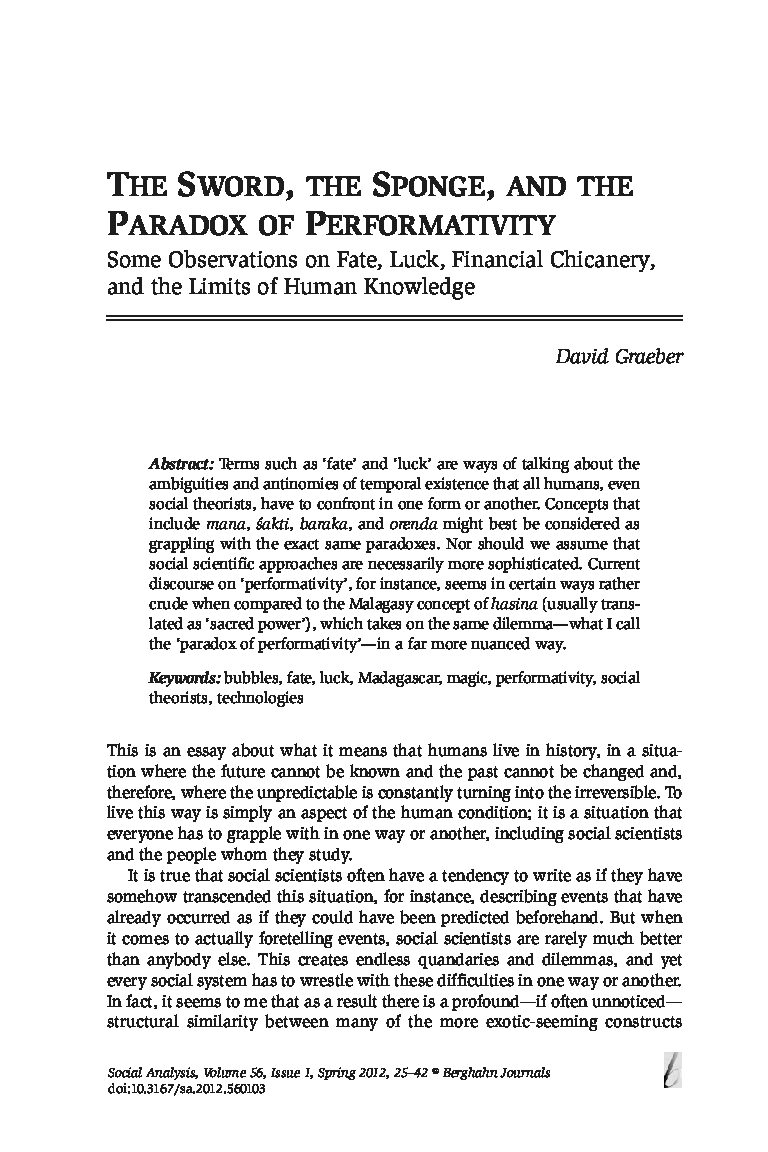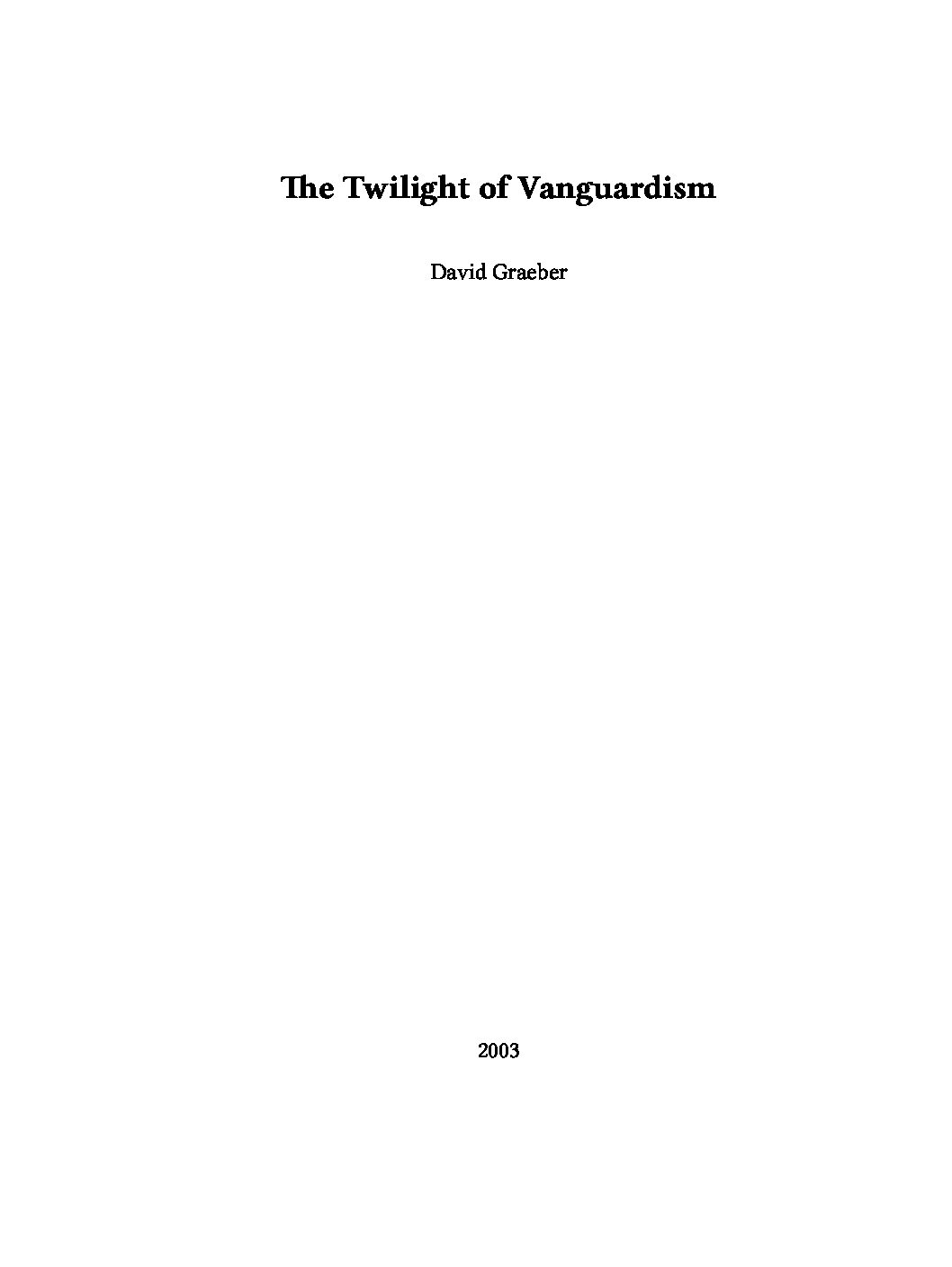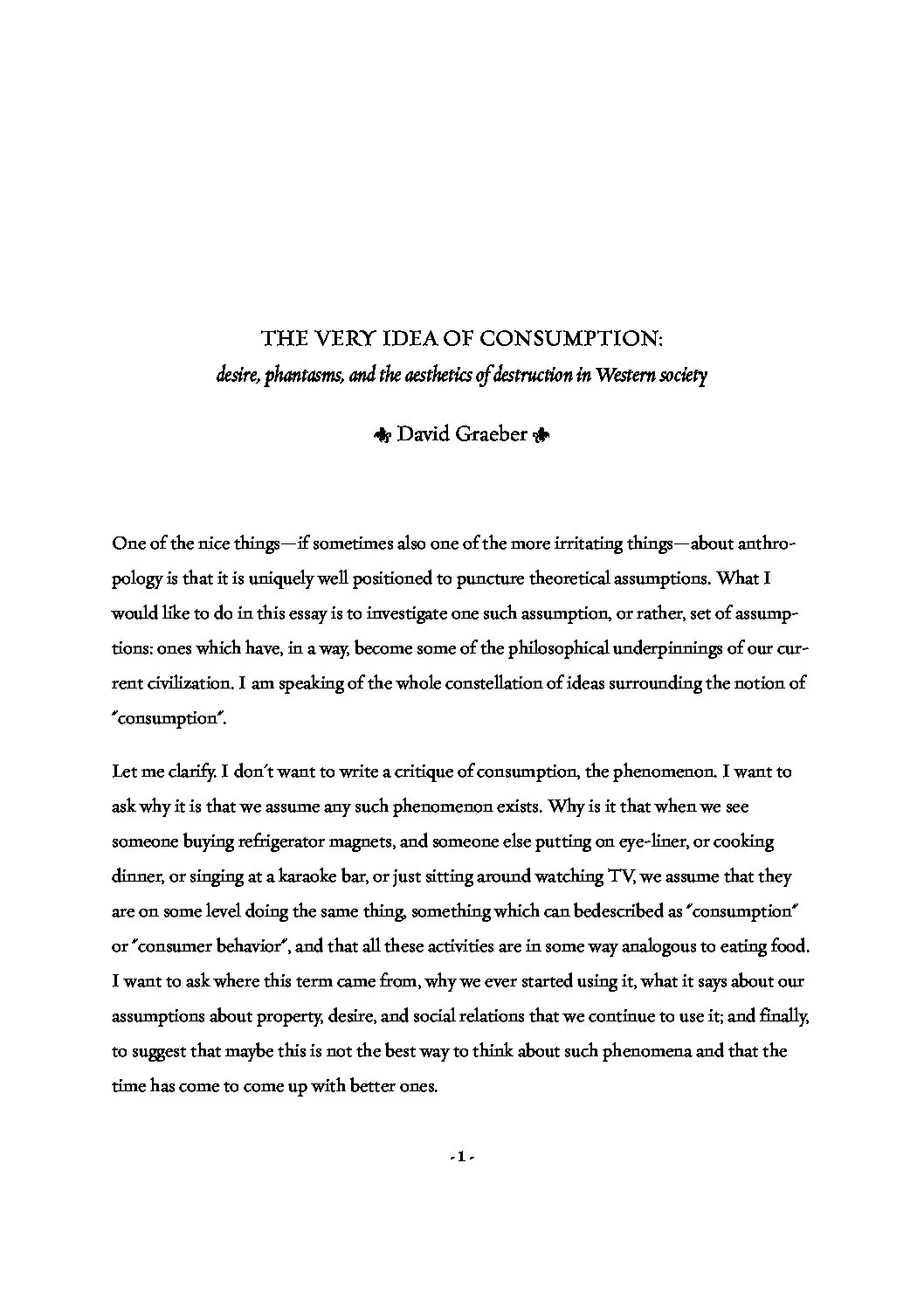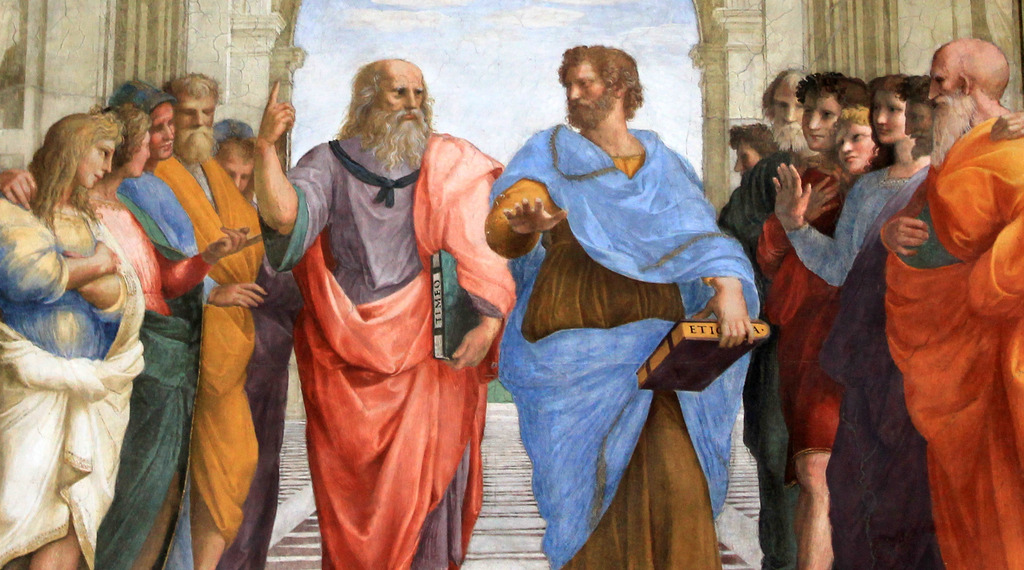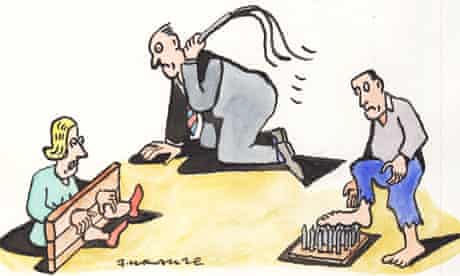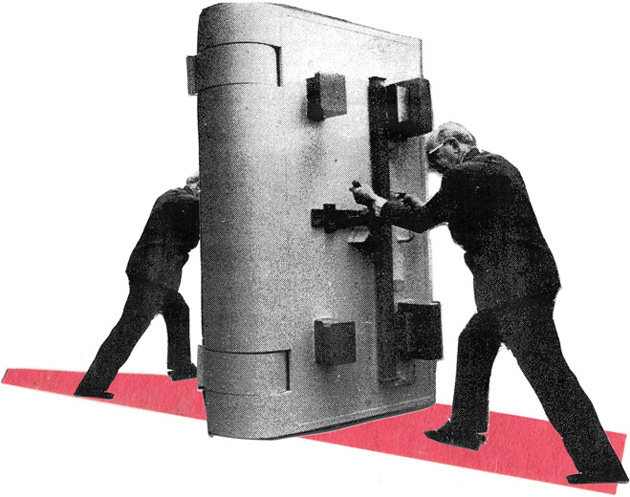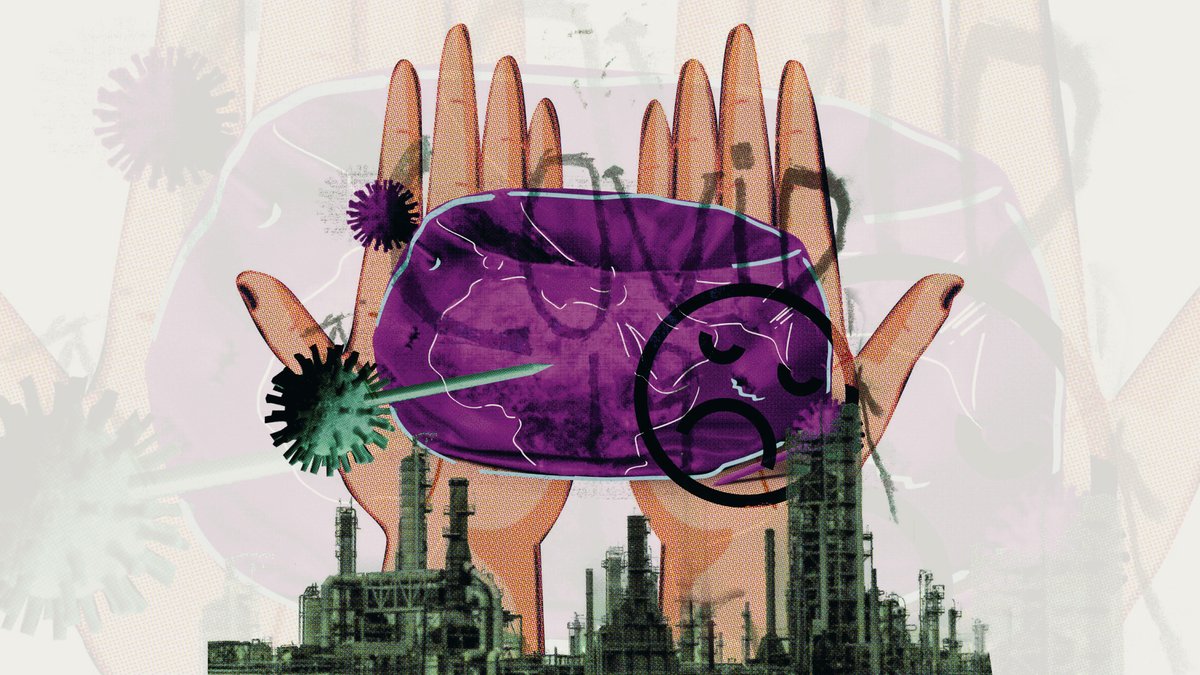The biggest problem facing direct action movements is that we don’t know how to handle victory.
This might seem an odd thing to say because of a lot of us haven’t been feeling particularly vic- torious of late.
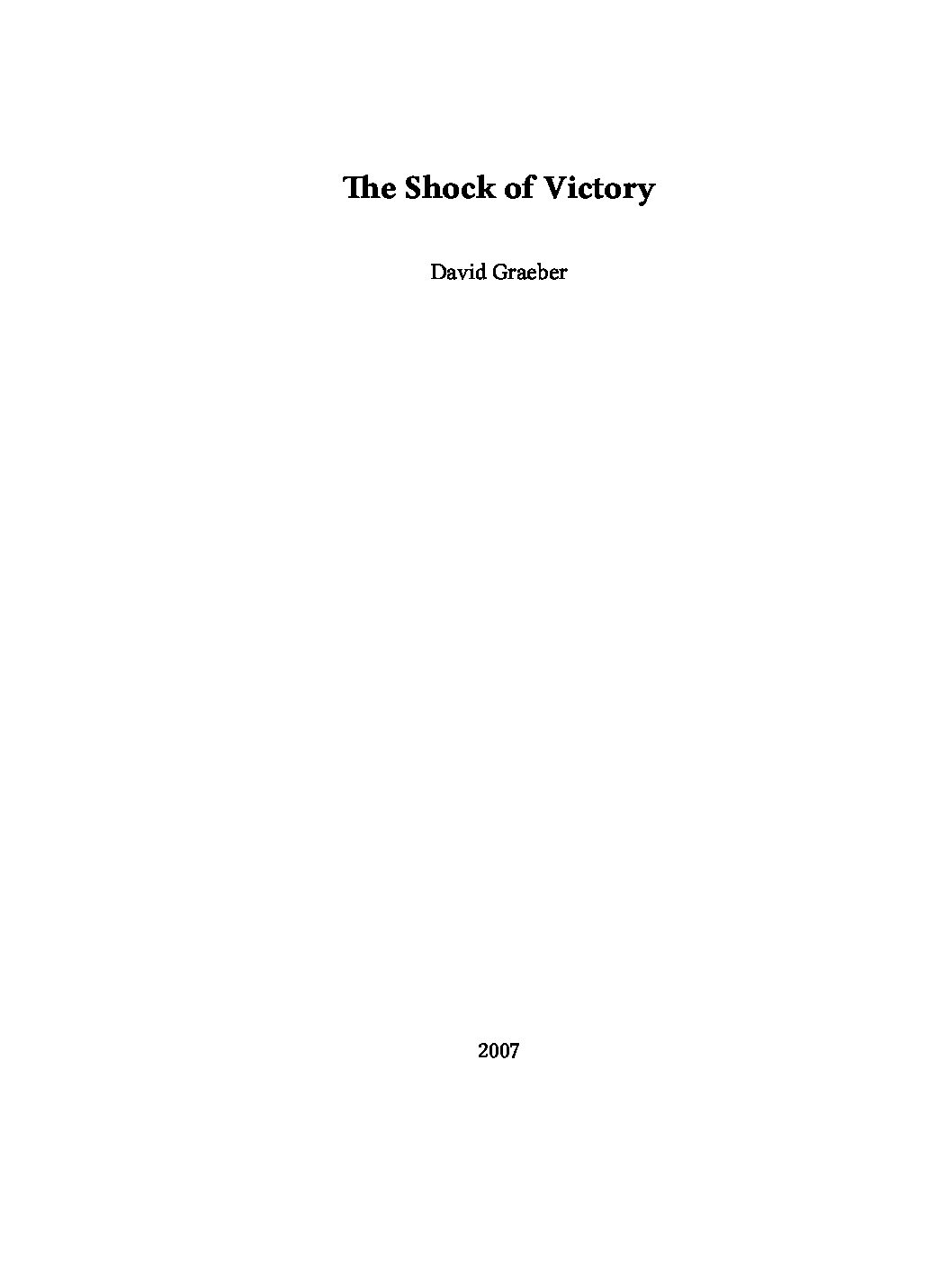

Articles and publications
The biggest problem facing direct action movements is that we don’t know how to handle victory.
This might seem an odd thing to say because of a lot of us haven’t been feeling particularly vic- torious of late.
This is an essay about what it means that humans live in history, in a situa- tion where the future cannot be known and the past cannot be changed and, therefore, where the unpredictable is constantly turning into the irreversible.
Back in the 1930s, Henry Ford is supposed to have remarked that it was a good thing that most Americans didn’t know how banking really works, because if they did, “there’d be a revolution before tomorrow morning”.
Revolutionary thinkers have been saying that the age of vanguardism is over for most of a century now. Outside of a handful of tiny sectarian groups, it’s almost impossible to find a radical intellectuals seriously believe that their role should be to determine the correct historical analysis of the world situation, so as to lead the masses along in the one true revolutionary direction.
One of the nice things—if sometimes also one of the more irritating things—about anthro- pology is that it is uniquely well positioned to puncture theoretical assumptions. What I would like to do in this essay is to investigate one such assumption, or rather, set of assump- tions: ones which have, in a way, become some of the philosophical underpinnings of our cur- rent civilization.
From the collection "Possibilities: Essays on Hierarchy, Rebellion, and Desire" by AK Press
The intellectual justification for austerity lies in ruins. It turns out that Harvard economists Carmen Reinhart and Ken Rogoff, who originally framed the argument that too high a “debt-to- GDP ratio” will always, necessarily, lead to economic contraction – and who had aggressively promoted it during Rogoff’s tenure as chief economist for the IMF –, had based their entire argu- ment on a spreadshe
Everyone already knows how much of Theresa May’s platform, policies and even rhetoric are directly stolen from Ukip. Nigel Farage himself publicly pointed it out this Sunday: not only had May taken Ukip’s major policy issues (immigration, grammar schools, bashing EU bureaucrats), he said, “She is using exactly the same words and phrases that I have been using for 20 years.
For thousands of years, the struggle between rich and poor has largely taken the form of conflicts between creditors and debtors—of arguments about the rights and wrongs of interest payments, debt peonage, amnesty, repossession, restitution, the sequestering of sheep, the seiz- ing of vineyards, and the selling of debtors’ children into slavery.
Our society is addicted to work. If there’s anything left and right both seem to agree on, it’s that jobs are good. Everyone should have a job. Work is our badge of moral citizenship. We seem to have convinced ourselves as a society that anyone who isn’t working harder than they would like to be working, at something they don’t enjoy, is a bad, unworthy person.
The new book The Utopia of Rules: On Technology, Stupidity, and the Secret Joys of Bureaucracy by David Graeber was published by Ad Marginem and will be available at the non/fiction book fair, which starts tomorrow, November 30.
In the wake of the murderous attacks in Paris, we can expect western heads of state to do what they always do in such circumstances: declare total and unremitting war on those who brought it about. They don’t actually mean it.
